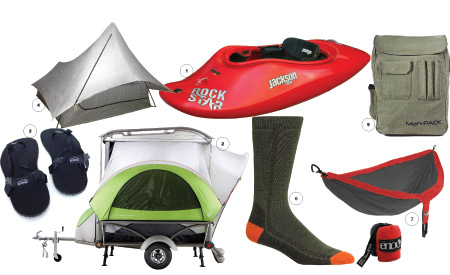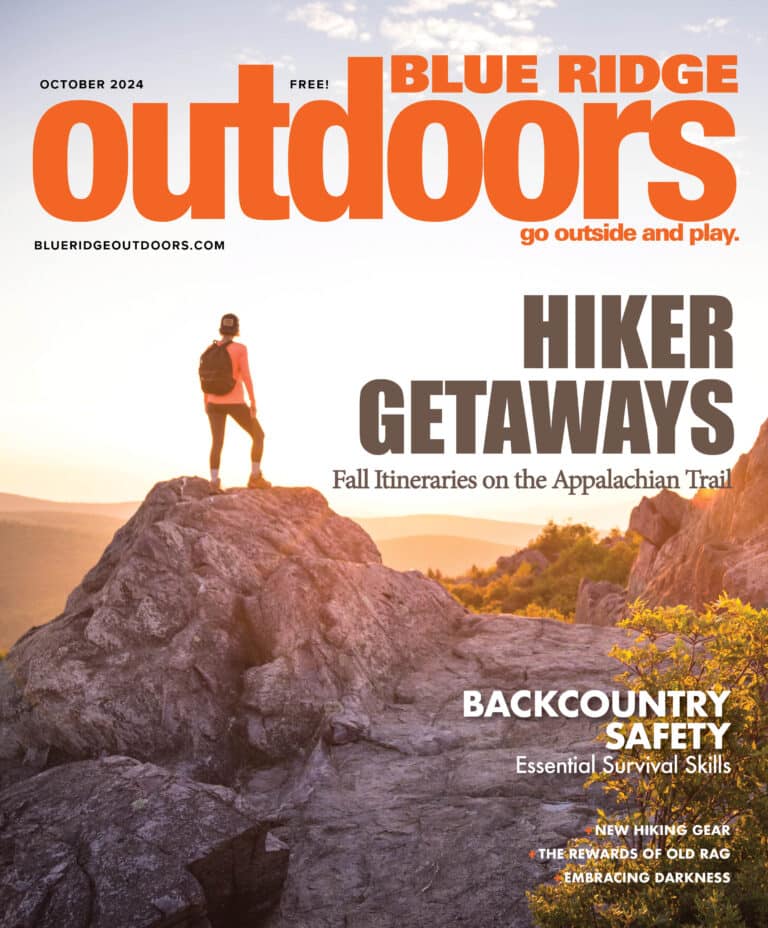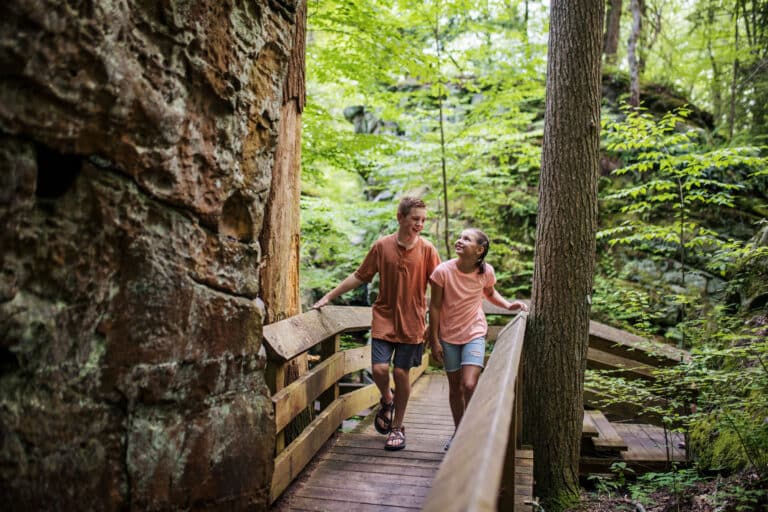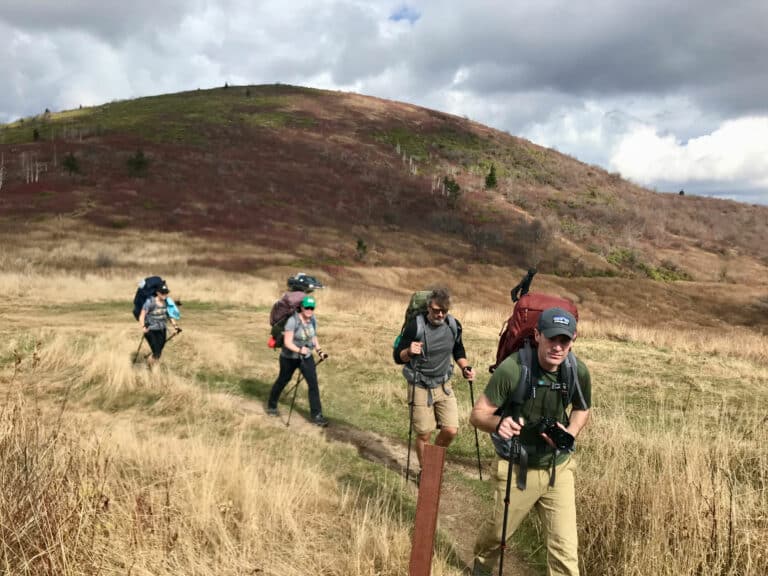Local. It’s more than just a word. These days, it’s a mentality, a lifestyle, even a philosophy. If you are a supporter of local farmers, businesses, or musicians, you should check out these seven companies that house and manufacture their products right here in your backyard. Here is your guide to gear made in the Blue Ridge.
1. Jackson Kayak
Sparta, Tenn.
The Story: When Jackson Kayak co-owner Eric Jackson was six years old, he ran his first set of rapids, an event that would spark a revolutionary lifestyle for Eric. Aside from being one of the world’s top whitewater paddlers, Eric had also dabbled in boat design with Wavesport. When his first two children, Emily and Dane, began paddling more frequently, Eric thought it was time for kayaking manufacturers to start making boats for youth. When others didn’t agree, Eric went out on his own and started Jackson Kayak in 2003. The company released its first boat, the Fun1, in time for the 2004 boating season. The Fun1 was designed for kids and proved to be a hit in the kayaking community. Within a few short years, Jackson Kayak would become the number one seller of whitewater kayaks in the world.
The Gear: 2014 Rockstar
The new design of the Rockstar is, according to Jackson Kayak, their best hull design yet. Both shorter and lighter than previous versions, the 2014 Rockstar has a new hip locker pad system, more volume in the middle of the boat for better retentiveness and edge stability, and a shorter and slicier bow that still has plenty of space for the feet.
$1,249, jacksonkayak.com
2. SylvanSport
Brevard, N.C.
The Story: SylvanSport owner Tom Dempsey is no stranger to the outdoor manufacturing business. As the former owner of Liquid Logic Kayaks, he’s well acquainted to what adventurers look for in a product. Tom sold Liquid Logic and invested his time into creating a lightweight, multifunctional camper. In 2004 he and his team of experienced outdoor designers founded SylvanSport, which now distributes their signature GO to customers across the country and overseas.
The Gear: GO
The GO camping and travel trailer has been described as more versatile than a Swiss Army knife. At only 840lbs, practically any car can pull GO. All parts are made and assembled in the United States. The camper itself collapses into a low profile design, which increases fuel efficiency while maintaining a ground clearance of 13 inches. GO acts like a pop-up camper, extending into a durable, specialized Kelty tent that sleeps as many as six people. When the tent is not extended, use the trailer to haul everything from kayaks to four wheelers and refrigerators. GO is truly customizable and fits any and every one of your needs.
$8,495, sylvansport.com
3. Bedrock Sandals
Charlottesville, Va.
The Story: Bedrock Sandals co-owners Nick Pence and Dan Opalacz met on the West Coast through their involvement in AmeriCorps, but were drawn together more so because of their interest in minimalist footwear. Both were recovering from injuries at the time, and after some initial experimentation, the two launched their product on Kickstarter and made over four times the amount of money they had set as their goal.
The Gear: Earthquake Sandals V2
As the benchmark Bedrock footwear, the Earthquake model is designed for everyone. Whether you’re a runner, hiker, or simply a barefoot enthusiast, these are the sandals for you. Made with a 6mm Vibram rubber sole, military grade straps, and an elasticized rubber heel made from a recycled bike tube, these are about as lightweight and minimalist as you can get. Bedrock Sandals also come with a lifetime sole warranty and their attention to customer service will ensure that you get the right size sandal for your foot.
$54, bedrocksandals.com
4. YAMA Mountain Gear
Charlottesville, Va.
The Story: If you walk down the hall from the Bedrock Sandals warehouse, you’ll find the one-man-show, YAMA Mountain Gear. Gen Shimizu, who is the owner, marketing manager, product developer, and gear manufacturer of this lightweight tent and tarp making company, went to college for mechanical engineering. After thru-hiking the Appalachian Trail and spending three months on the Pacific Crest Trail, Gen started his company and has been spreading the good word about adventure and lightweight backpacking options ever since.
The Gear: Cirriform SW 1P
This lightweight tent is the perfect alternative for solo hikers who like a little breathing room. At 19.5oz, the Cirriform SW is handmade by Shimizu and comes complete with a Cuben Fiber Canopy, Silnylon Floor, and No-See-Um Ultra Mesh. It packs down to a compact 10” x 7” x 5” size yet, when set up, provides backpackers with 41” of headspace and 26” at the rear.
$420, yamamountaingear.com
5. Man-PACK
Front Royal, Va.
The Story: Aaron Tweedie was working as a general contractor when the idea for a Man-PACK came to him. He wanted something that was lightweight, durable, versatile, and manly. After some research, Tweedie concluded that a product like this simply did not exist for men. His solution? He made his own. After refining multiple prototypes, Tweedie launched his product on Kickstarter, and the campaign was a huge success.
The Gear: Man-PACK Classic 2.0
This heavy-duty canvas bag can be worn three different ways to fit your activity needs. Whether you’re taking a hike or barging through city crowds, the Man-PACK can be kept on your back, by your side, or in front of you to keep your belongings safe and secure. The main compartment is ideal for holding 8” x 11” files, laptops and e-readers. The adjustable chest strap has a quick-release clasp and utility pocket. The side beverage pocket is collapsible so it’s there when you need it and out of the way when you don’t. For men with a larger girth, be sure to check out the Man-PACK 2.0 XL.
$45, man-pack.com
6. Farm To Feet
Mt. Airy, N.C.
The Story: Farm to Feet president Kelly Nester, also president of parent company Nester Hosiery, has been in the sock business for years. Nester wanted to see something out of a sock that transcended great performance. When the Great Recession hit and millions of Americans lost their jobs, the public began to consider where products were manufactured. That’s when Nester got his idea. He wanted a product that reflected the local mentality that was sweeping the nation. His brainchild, Farm to Feet, mimics the “farm-to-table” approach in its commitment to supporting and utilizing everything American, from wool suppliers to state-of-the-art machines.
The Gear: Adventure Hike Series
No matter which of the three styles of Farm To Feet socks you chose, each one is guaranteed to be 100% American. With everything from wool to nylon, elastic, and packaging sourced within the United States, you can be sure to feel good about supporting this domestic business. Each pair of socks has a compression fit from the Achilles through to the middle arch, seamless toe closures, and special cushioning to ensure a comfortable fit. The reinforced design of the sock allows your favorite pair to last for years.
$23, farmtofeet.com
7. Eagles Nest Outfitters
Asheville, N.C.
The Story: Peter and Paul Pinholster are not only brothers but also lifelong adventure partners. They discovered the benefits of hammock living in the late 1990s while visiting Costa Rica and New Zealand. When they returned to the States, they realized the American version of hammocks were in need of an update and so, in the summer of 1999, the brothers turned their garage from storage shed to hammock warehouse. With the help of their mother’s Singer sewing machine, they created the first models of the parachute hammock. After relocating to Asheville, the company grew from a windowless, one-room facility to a renovated, 18,000-square-foot warehouse and office building.
The Gear: The DoubleNest
This small, lightweight hammock packs down to the size of a large grapefruit and weighs in at 19 ounces, making it the perfect addition to any outing. Crafted from 70D nylon, this hammock is breathable enough for hot summer days yet durable enough for any adventure.
$70, eaglesnestoutfittersinc.com








